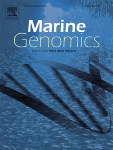Submitted by Eva Chatzinikolaou on

A new publication with the title "Salinity is the major factor influencing the sediment bacterial communities in a Mediterranean lagoonal complex (Amvrakikos Gulf, Ionian Sea)" has been launched within the context of the LifeWatchGreece project during January 2016. This publication is an article in Marine Genomics and the full text can be found here (http://www.sciencedirect.com/science/article/pii/S1874778716300058).
Abstract: Lagoons are naturally enriched habitats, with unstable environmental conditions caused by their confinement, shallow depth and state of saprobity. The frequent fluctuations of the abiotic variables cause severe changes in the abundance and distribution of biota. This relationship has been studied extensively for the macrofaunal communities, but not sufficiently so for the bacterial ones. The aim of the present study was to explore the biodiversity patterns of bacterial assemblages and to examine whether these patterns are associated with biogeographic and environmental factors. For this purpose, sediment samples were collected from five lagoons located in the Amvrakikos Gulf (Ionian Sea, Western Greece). DNA was extracted from the sediment and was further processed through 16S rRNA pyrosequencing. The results of this exploratory study imply that salinity is the environmental factor best correlated with the bacterial community pattern, which has also been suggested in similar studies but for macrofaunal community patterns. In addition, the bacterial community of the brackish lagoons is differentiated from that of the brackish-marine lagoons. The findings of this study indicate that the studied lagoons have distinct bacterial communities.





